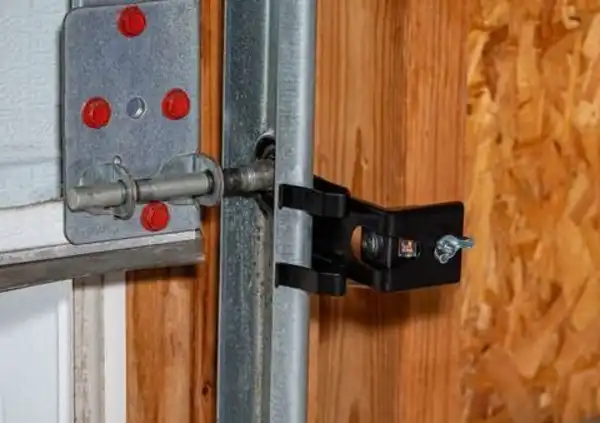
Precision Garage Door Service® experts explain why garage door sensors are critical safety devices that prevent automatic garage doors from closing on people, pets, or objects.
|
Garage door not closing? Your sensors might be trying to protect you. Garage door sensors are a safety feature designed to prevent your garage door from closing on objects in its path. Without working sensors, any objects or persons in the vicinity of your garage door are at risk of damage or injury.
In this guide, Precision Garage Door Service breaks down everything you need to know about garage door sensors, from how they work and common issues to safety tips, smart upgrades, and when it’s time to call a pro.
Article contents
- What Are Garage Door Sensors For?
- Common Reasons Why Garage Door Sensors Malfunction
- Can You Fix Garage Door Sensors Yourself?
- Signs It’s Time to Replace Your Garage Door Sensors
- Why Professional Service Makes All the Difference
- FAQs About Garage Door Sensors
What Are Garage Door Sensors For?
Garage door sensors are an essential part of your automatic garage door opener system. They’re typically mounted on each side of the door, about six inches off the ground, and they work together to detect motion or obstruction.
Here’s how they operate:
- One sensor emits an invisible infrared beam across the width of the door.
- The other sensor receives that beam.
- If something interrupts the beam, the door immediately stops closing or reverses direction.
In short, these sensors are the unsung heroes of garage safety. Without them, your door would close blindly, potentially damaging anything (or anyone) in its path.
Other garage door sensor types
Some garage doors use pressure sensors instead of infrared sensors. Pressure sensors can detect an object or person in the path of the garage door based on a minuscule amount of resistance. Although they work differently, the result is the same: The door stops closing.
Carbon dioxide sensors are not as common, but still provide an important safety function when present. They’re designed to automatically open the door when carbon dioxide levels in the garage get too high.
Common Reasons Why Garage Door Sensors Malfunction
If your garage door closes partway before reversing, even though nothing is in the way, the issue probably lies with the sensors. Over time, dust, vibration, or wear can cause them to misalign or malfunction. Here are the top reasons your garage door sensors might not work properly:
Misalignment
If the sensors aren’t perfectly aligned, the beam can’t connect; your opener will interpret that as an obstruction and refuse to close.
Dirty lenses
Garage dust, cobwebs, or rain residue can block the infrared beam. Wipe the lenses gently with a soft cloth to clear the signal.
Damaged wiring
Loose or frayed wires can interrupt the electrical signal between sensors and the opener.
Sunlight interference
Direct sunlight sometimes interferes with the infrared beam. Shielding or repositioning the sensors can solve the issue.
Power supply issues
If one sensor’s light is out completely, there may be a wiring or circuit issue that requires professional repair.
When in doubt, don’t force the door to behave in a way it doesn’t want to. Schedule a professional garage door inspection to find and resolve the issue properly.
Can You Fix Garage Door Sensors Yourself?
While cleaning or gently realigning sensors is safe enough, any wiring or opener-related issues should always be handled by a professional.
DIY fixes can lead to incorrect alignment that strains your opener motor, short circuits from misconnected wires, or voided manufacturer warranties.
Most importantly, when dealing with electrical components and spring-loaded systems, safety and precision are paramount. Let a trusted garage door service with fully trained and field-tested professionals ensure your sensors work correctly and your door operates safely.
Signs It’s Time to Replace Your Garage Door Sensors
Your sensors might need replacement if you notice:
- The door won’t close, even after cleaning and alignment.
- Indicator lights won’t turn on.
- Your opener flashes 10 times in a row, a common error code for sensor failure.
- The sensors look cracked or have frayed wires.
Replacing sensors is a matter of both convenience and safety. If your infrared, pressure, or carbon monoxide sensors have been malfunctioning, don’t wait to have them checked by a qualified professional.
Why Professional Service Makes All the Difference

Your garage door system is only as safe as its installation. Even a small error in alignment, wiring, or calibration can compromise your entire setup. Precision Garage Door Service provides local professionals trained in advanced safety systems, with same-day service (available at most locations), 24-hour support, including weekends and evenings, and industry-leading warranties, all backed by our Neighborly Done Right Promise®.
If your sensors need repair, replacement, or inspection, your local Precision Garage Door Service team can help. Schedule service with a professional near you today and let us make sure your garage door sensors are working as designed.
Disclaimer
This article is intended for general guidance only and is not applicable to every situation. You are responsible for determining the proper course of action for your property and situation. Precision Garage Door Service is not responsible for any damages that occur as a result of advice and/or guidance derived from its blog content. Some services offered by Precision Garage Door Service may vary by location. Contact your local Precision Garage Door Service franchise for more information.
FAQs About Garage Door Sensors
As a garage door service, repair, and installation leader renowned for integrity and dependability, all independently owned and operated Precision Garage Door Service locations are committed to safety, quality workmanship, and your satisfaction. This commitment includes using our expertise and years of experience to answer your questions. Here are answers to some of the most frequently asked questions about garage door sensors.